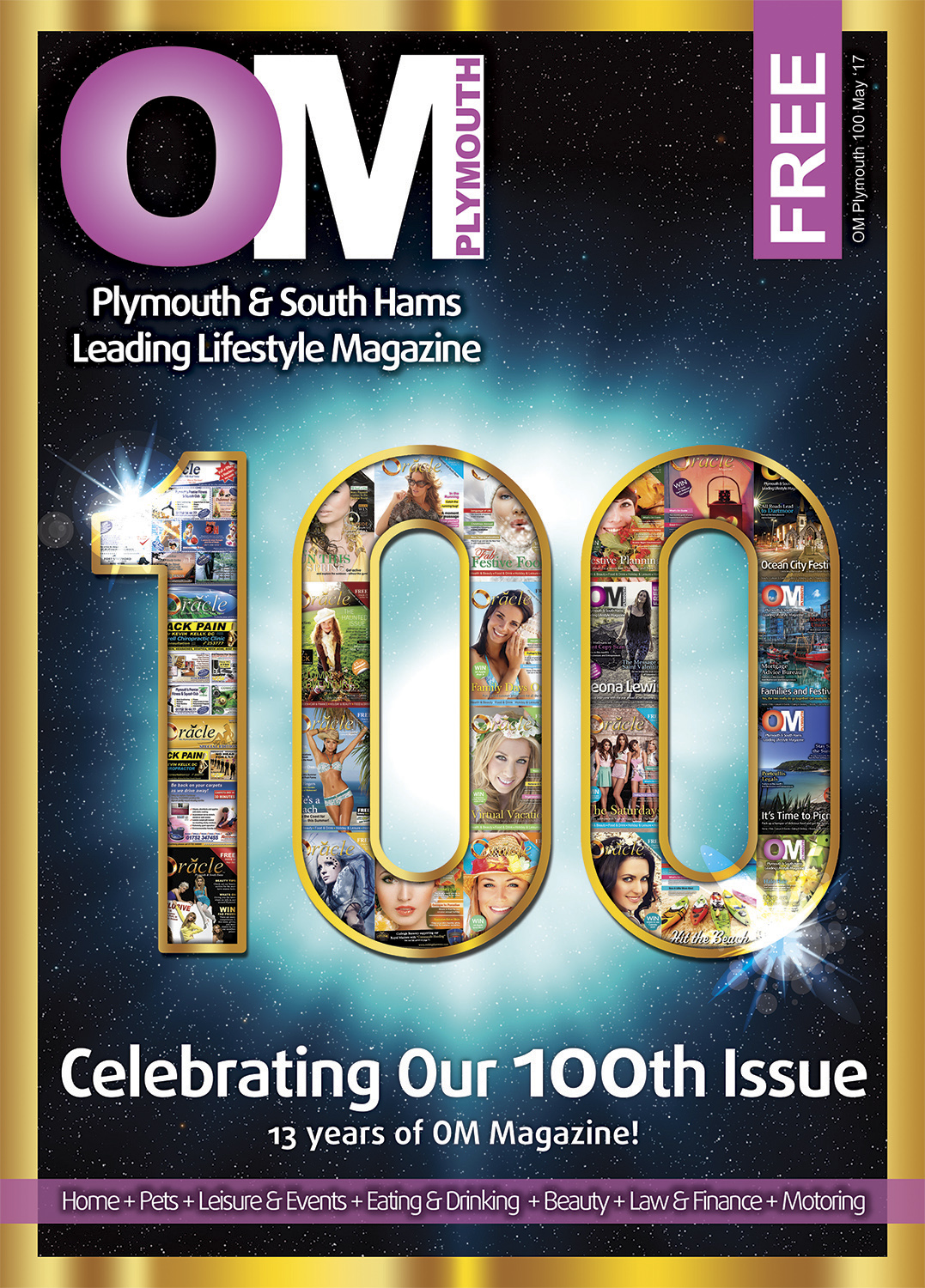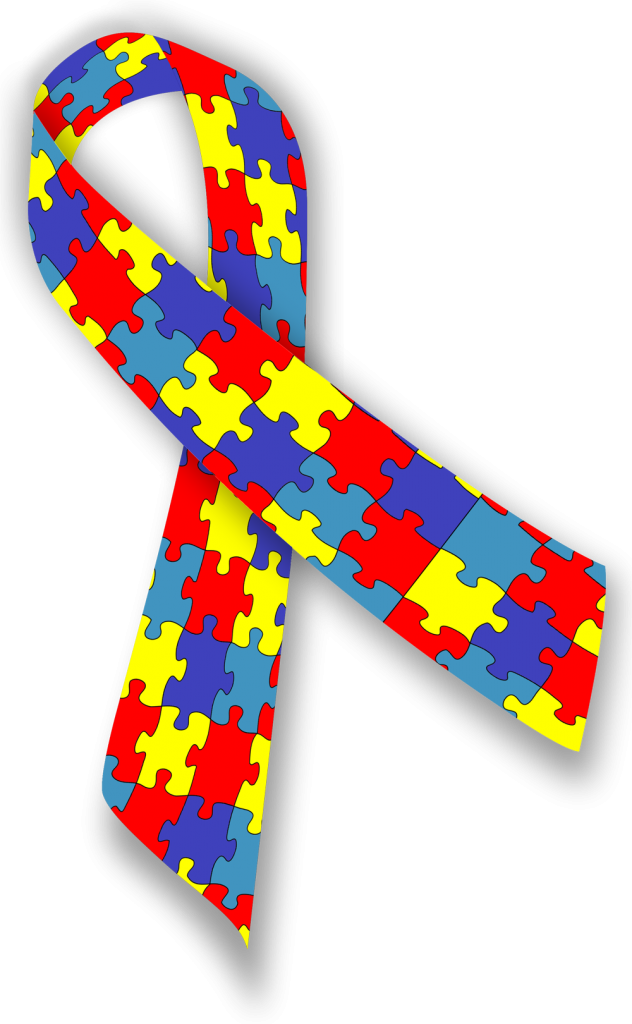Autism Awareness
National Pet Month
28th March 2017
OM Magazine, Issue 100, May 2017
26th April 2017T he ninth annual World Autism Day is 2nd April 2017, but what is autism, and how can you participate? Read on to learn more about the condition, raise awareness and learn how you can help!
he ninth annual World Autism Day is 2nd April 2017, but what is autism, and how can you participate? Read on to learn more about the condition, raise awareness and learn how you can help!
Autism, or autism spectrum disorder (ASD), is a developmental disability, characterised by problems with social interaction, speech and non-verbal communication. As a spectrum condition, the disorder varies between individuals, with symptoms ranging from mild to severe. At its most extreme, an autistic person has intense difficulties communicating, and may even require round-the-clock supervision.
Autism is a surprisingly common disability, with 700,000 people with the condition in the UK alone–affecting more than 1 in every 100 individuals. Including family members and carers, autism is a daily consideration for over 2.8 million people. With so many people affected, it’s surprising how few people on the spectrum feel supported.
According to The National Autistic Society, 63% of autistic children are not in a supportive educational environment, whilst 70% of autistic adults feel they are not receiving adequate help from social services.
Causes
The causes of autism are currently unknown, although research suggests that the cause could be any number of environmental, genetic or biological factors. Some cases have been linked to prenatal chemical exposure, making it essential to contact your GP before medicating whilst pregnant. It was once suggested that a preservative in certain vaccines could cause autism in young children, though these claims have since been discredited, and although there is no evidence of harm, the preservative has been removed as a precautionary measure.
Types of Autism
There are three different types of autism currently recognised, including autistic disorder, asperser syndrome and childhood degenerative disorder. Although these conditions may share characteristics, there are a few fundamental differences:
Autistic disorder (also known as classic autism, childhood autism, early infantile autism, and Kanner’s syndrome) is what people tend to think of upon hearing the word ‘autism’. People with the condition tend to suffer from language and communication delays, social challenges and repetitive behaviours and interests.
Asperger syndrome (also known as asperger’s) tends to present in milder symptoms than autistic disorder, and individuals diagnosed are inclined to be of average or above average intelligence. The condition is characterised by similar social challenges, and unusually focused interests, but may lack the language and communication delays present in autistic disorder.
CDD (also known as Heller’s syndrome) is a rare condition characterised by considerable developmental delays and regression, usually affecting language, movement and social function. A common symptom is the loss of ability to communicate in children who previously had the ability to converse in sentences. CDD tends to manifest in children of about 4 years old, after several years of normal development.
Identification
The National Institute of Mental Health states that symptoms tend to vary between individuals, making autism difficult to immediately identify, but there are a few fundamental signs which could help lead to a diagnosis. In children, indications might include problems with social interaction from a young age, issues with verbal and nonverbal communication, and repetitive behaviour patterns. Symptoms might present differently in adults, such as an inability to read or understand the intentions of others, restrictive and repetitive patterns of behaviour, difficulty maintaining conversation, and an avoidance of social interaction.
Diagnosis
Unfortunately, there is no known cure for autism, but it can be extremely valuable to seek a diagnosis from a doctor. There are a number of benefits to seeking a formal diagnosis, including helping others to understand the difficulties of the condition, and finding appropriate support. In children, diagnosis is possible from a young age, but it is often more common to seek medical help later in the child’s development, especially if the condition does not have accompanying learning difficulties. Ultimately, It is important to trust your instincts and take action if you feel your child might be expressing common symptoms, instead of waiting to see if the symptoms escalate.
When medical intervention is sought, there are several stages before formal diagnosis. The first step is to discuss your situation with a medical professional, making sure to outline all the behaviours and characteristics that concern you or your child. It is during this initial meeting where the medical professional may carry out a ‘screening’. This is not a diagnosis, but it will indicate whether the concerned individual is autistic, or has other underlying issues to address. After this screening, the GP or health visitor will refer the case onward for assessment, where a diagnosis can be secured.
Care
Caring for someone with autism can be daunting, especially if the symptoms are severe. It may help to slightly alter your own behaviour towards the care-receiver in order to improve communication. Particular changes include keeping background noise to a minimum, and keeping language simple and clear. There are a variety of support avenues and resources available to help you achieve this, for both carers and autistic individuals, on the NHS and the National Autistic Society websites.
It is also important to utilise support systems and take advantage of the benefits which are available to you. If you act as a full-time guardian you could apply for Carer’s Allowance to help you with expenses.
How can I help?
Even if your daily life isn’t affected by Autism, you can still help! Many charities require volunteers. Fundraising is essential for continuation of quality services and advocacy and you can help by making a donation to one of the many charities available including Autism Initiatives, Child Autism UK and The National Autistic Society. There are also a variety of free newsletters online, which provide the latest news, support and research, education and resources.
Finally, it’s important to spread awareness of how autism, although sometimes debilitating, is also a disability characterised by positive traits too. Many autistic individuals are intelligent, focused and passionate, and tend to see the world in a different, but equally valid way.
We’ve spoken to Judi Armstrong, who sent in a piece about being a mother to her autistic son, the challenges she faces, and the positive side to the condition:
“We haven’t had an alarm clock in years! I don’t need one. We have our son. He knows what time it is down to the second regarding his daily routine, and also ours. Our son has asperger syndrome, and amongst other things, he thrives on predictability and routine. No, he NEEDS it! Mornings are a delicate dance. Every minute counts. Getting things “right” is crucial, and can set the balance for the whole day. He also never. forgets. anything.
Raising a child with autism is a constant challenge: daily rituals can last five minutes to five hours, anger, hostility, violent meltdowns, not knowing the triggers of so much psychological pain, not eating or tolerating the strong smell of others foods… This is our day. Being his parent is an exhausting, exhilarating and often a lonely rollercoaster ride.
What we hear daily from many is ‘but he looks so normal’. I have to seriously put aside my Neanderthal thoughts when this is said…Tell me, what does an autistic child look like?! What I can tell you is this: whilst our children may act differently from what you’re familiar with, they are our ‘normal’. They are full of emotion, fierce love, beauty, and tender hearts. Our son, as many with asperger syndrome, is very smart, talented and creative. Children with asperger’s usually have this incredible, unspecified talent that you have to find because their minds work differently.
Our son has danced with Matthew Bourne, done much Theatre Royal work, Acted in two worldwide cinema films and whose wonderful acting/singing talent is positively embraced at his secondary school. You have to persist, nag, threaten and beg as an advocate for your child, and to be the advocate he needs you to be. The relationship between your child, us as parents, the teachers, the head teacher and others is crucial.
Oh, one other thing. We all claim to value the truth, but almost all of us tell little white lies. All that is except people on the Autistic spectrum. There is no hidden agenda. To them truth is Truth – and a good word from our son on the spectrum really is the real deal.”
Judi Armstrong- Proud Mother xx





